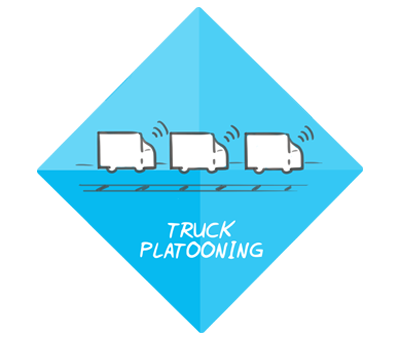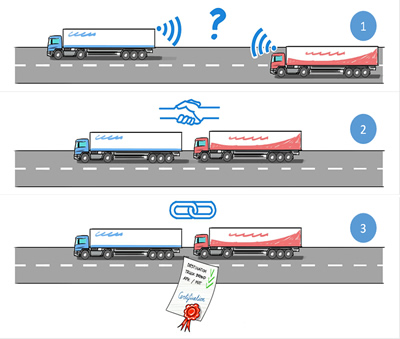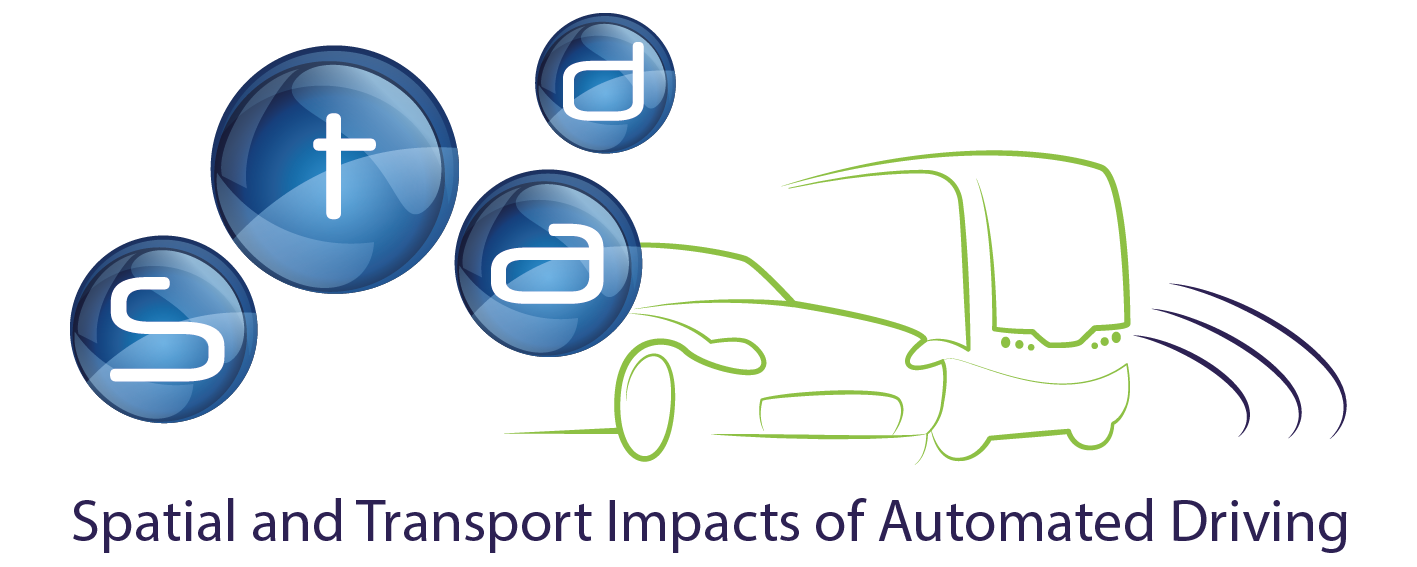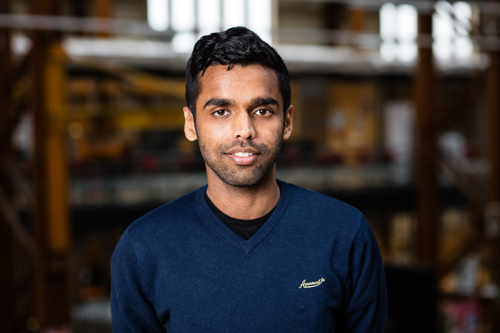The main research goal is to develop new optimization approaches that help to maximize the benefits and adoption rates of platooning in context of freight distribution. Moreover, the research aims to develop a simulation framework (PLATOON-SIM) to access the performance of different planning approaches in different environments. Our specific objectives include:
- Assess the effectiveness of different business models and corresponding planning approaches to form platoons. This includes a comparison between centralized and decentralized configurations and different levels of dynamism;
- Evaluate the impact on the system performance of different spatial and temporal characteristics of the transportation demand (e.g. traffic flow in port hinterland versus retail distribution) and infrastructure (road network structure). System performance can be measured in terms of logistics costs, traffic congestion, emissions, etc;
- Develop new mechanisms to incentivize the adoption of platooning and to simulate collaboration between different transportation providers.
- Evaluate the impact on the system performance of different legislative or policy measures in the area of automated driving.
Platooning is most practical on highways: interesting case studies include the deployment of platoons in the metropolitan region of “Rotterdam-The Hague” and corridors within the captive hinterland of the port of Rotterdam. In city logistics, platoons of small delivery vehicles may provide a promising alternative to large delivery vehicles; such platoons can break up into smaller vehicles to serve individual urban locations.


Anirudh Bhoopalam is working on this project and is guided by Rob Zuidwijk, Niels Agatz and Caspar Chorus.


